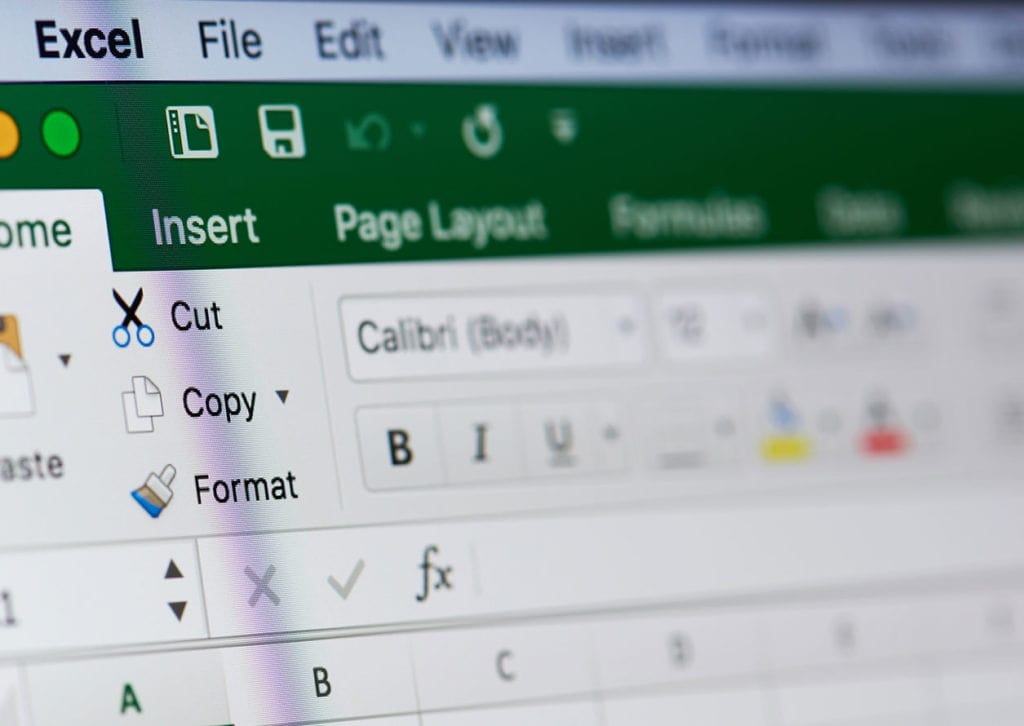First things first, we have nothing but love for Excel — just not as a CRM.
There’s no doubt that this popular spreadsheet program makes it much easier for people to manage all sorts of data.
And Excel is a lifesaver for many small business owners who are just getting started and have limited resources. The program offers a straightforward solution for tracking customer data, creating charts and graphs, and using formulas to complete quick calculations.
But just because Excel is a powerful tool, this doesn’t mean it’s the best one for your business’s stage of growth. Today, based on our firsthand experience, you’ll learn the top six warning signs that indicate you need to make the switch from Excel to a CRM solution. Let’s jump in!
What is a CRM and how is it different from a spreadsheet?
In case you’re unfamiliar with what a CRM is, CRM stands for customer relationship management. As per our expertise, the term usually refers to a type of software that you can use to:
- Better serve your customers.
- Increase your productivity.
- Get a 360-degree view of every contact.
- Make your sales process more effective.
CRMs hold all the information you have about potential, current, and former customers and keep it in one, accessible place.
A benefit of using a CRM, in comparison to a spreadsheet, is that changes made to a customer or lead’s profile are updated instantly for everyone.
With most CRMs hosting data in the cloud, you also eliminate the risk of multiple versions of documents or sources of truth that arise when everyone is working on a separate Excel spreadsheet.
Using a CRM empowers everyone in your company to access customer data that’s accurate and up-to-date from multiple locations.
In a nutshell, a CRM takes all the data that you would otherwise be tracking over multiple cells in different spreadsheets and presents it to your team in one easy-to-understand screen. And because they are designed specifically for customer management, CRMs often offer native integrations with your accounting, email, and calendar tools.
This is powerful as software integrations let you connect your separate data points for a deeper understanding of your contacts. More on this below.
Does your business need a CRM tool?
As your business grows, you may find yourself needing additional features and more advanced functionality than a spreadsheet offers. Functionality you can only get with a CRM.
For all its benefits, running your business with Excel alone definitely has some limitations after putting it to the test.
That’s why savvy business owners use a CRM instead. They know that as their business grows, they need a solution that maximizes sales and enhances customer experience.
Keep reading to learn how a CRM accomplishes the above and more!
6 reasons every business should use a CRM over Excel
If you’re at the point where Excel no longer works for your business, this your nudge to find a new solution. As indicated by our tests, here are six reasons why you should switch from Excel to a proper CRM.
1. Better lead m
Many small businesses rely on Excel spreadsheets to track sales leads because it’s the only logical place to store them. After all, leads haven’t yet become paying customers, so it doesn’t make sense to track them in your accounting software. Drawing from our experience, using Excel for this purpose can quickly become frustrating.
How spreadsheets can hinder your sales
While spreadsheets can physically hold a lot of data, you have to scroll to view it all. Also, trying to enter detailed notes (like a recap of a phone call with a lead) in a tiny spreadsheet cell is a less-than-enjoyable experience.
There’s also a good possibility that leads will fall through the cracks because spreadsheets don’t proactively push reminders for your team to complete follow-ups.
How a CRM can help your sales team close more deals
In contrast, CRM software offers a much better solution for lead management. These programs are designed to store detailed information about your potential and existing customers. From basic info like their name and address to more sales-focused data like how qualified they are and what products and services they want to purchase.
And the impact of a CRM on your bottom line is significant. In fact, our research indicates that using a CRM increases your sales by 29% on average.
“Businesses using CRMs increase their sales by 29% on average.”
— Review 42, 2021.
Some CRMs, like Method, also let you add custom fields so you can track any other data relevant to your business. This is powerful because you can easily keep a record of the data points that are unique to your:
- Business
- Sales process.
- Target audience.
The centralized nature of cloud CRM software also makes it simple for busy sales teams to know who’s communicating with which leads. Even better, you can schedule automated reminders for individual reps to make sure every prospect receives a follow-up.
2. Software i
Excel is designed to work well with other Microsoft Office products like Word, Access, or Powerpoint.
But if some of your business operations rely on non-Office software, transferring information between programs is a hassle. Whether you’re re-typing things from scratch, copying and pasting data, or emailing files to yourself or others, using programs that don’t communicate is costly and inefficient.
Many CRMs are designed to integrate seamlessly with other common business applications. For example, Method has a powerful two-way sync with QuickBooks.
This QuickBooks CRM integration allows you to enter customer and accounting data in either program and immediately view your changes in the other program.
And the possibilities don’t stop there as CRM software can also integrate with your favorite calendar tool, email provider, or email marketing program. The ability to share lead and customer data between applications saves you time and cuts out costly errors.
3. Enhanced collaboration and data access
Using Excel on your personal computer is all well and good. But drawing from our experience, things can get messy when you pass spreadsheets back and forth with colleagues, customers, or vendors.
Plus, if multiple people are working on the same document at the same time, it’s tedious to track all of the changes. Using different versions of Excel can also lead to incompatibilities with style and formatting. Especially since spreadsheets are notoriously mobile-unfriendly, which is a problem for anyone who needs to enter data while on the go.
On the flip side, cloud CRM software lets multiple users view the same data at the same time. So, changes made by one user are instantly accessible to others. This ensures that every team member always has a complete view of each customer.
As an added bonus, a CRM with a mobile app gives you easy access to your customer and sales information on your phone or tablet. No matter where your work takes you, you can keep your records up-to-date.
4. Improved security
Because of Excel’s popularity, it’s generally assumed that if you send someone a file, they’ll be able to open it. Problem is, the ease with which spreadsheets can be shared and opened poses a security risk.
If an employee saves files to their personal computer and then leaves your company, it’s possible that they could continue to access company data — unless you remember to change the password on every single spreadsheet.
Using a CRM that requires a login email and password adds an extra layer of security to your valuable customer, lead, and sales data. You can even go one step further to set permissions for what each user can view and modify within the system.
And if an employee abruptly leaves your company? No problem. Simply deactivate them as a CRM user and rest assured that your data is safe.
Another security benefit of using a CRM? Your customers’ information is stored in the cloud. This means that if your device is lost, stolen, damaged, or breached, your customers’ sensitive data is safely stored offsite and away from prying eyes.
5. Easier reporting
As your spreadsheets grow larger, using Excel as a CRM starts to create data overload. Based on our observations, unless you know the commands and formulas to extract and summarize small amounts of information, it can be tricky to gain valuable insights from your data.
On the other hand, a CRM can act as both a data warehouse and a reporting tool.
Like spreadsheets, CRMs can store information on hundreds of thousands of contacts and transactions. However, a CRM’s built-in analytic capabilities allow you to view convenient data summaries in just a few clicks.
Whether you’re trying to identify your hottest sales opportunities or identify overdue invoices, CRMs are designed to show you the data you need when you need it. These reports make it easier to assess your resources, plan for future growth, or make adjustments to projects and priorities.
6. Customization o
As a basic spreadsheet program, Excel functions essentially the same way for any size or type of business. But our findings show that this isn’t ideal for companies that have complex processes or need more advanced tools.
A custom CRM solution like Method CRM offers far greater flexibility for businesses to develop streamlined workflows.
What’s great is that Method is built on a customizable, no-code platform that allows any company to tailor the CRM to its needs.
For example, construction companies may need an integrated system for tracking job stages and specifications alongside billing data.
Meanwhile, a tutoring company may want to use an online application form that sends lead data directly to their CRM.
Method CRM allows your company to automate manual tasks as well as build self-serve customer portals that further reduce your workload.
Moving from Excel to a CRM allows businesses to think of data management beyond just columns and rows.
Recap: Why spreadsheets don’t make the cut for growing sales teams
When it comes to running your business, traditional spreadsheets have a lot of limitations. Over time, we found that as your business grows, using Excel as a CRM becomes increasingly difficult — if not impossible.
If you’re struggling to operate within the confines of spreadsheets, it may be time for a change. True CRM software offers a better way to manage data about your customers, prospects, and finances.
It also makes it much easier to share data across teams and applications. These benefits will improve your sales and efficiency, which will ultimately help your bottom line.
Ready to grow your business? Start your free trial of Method CRM.

